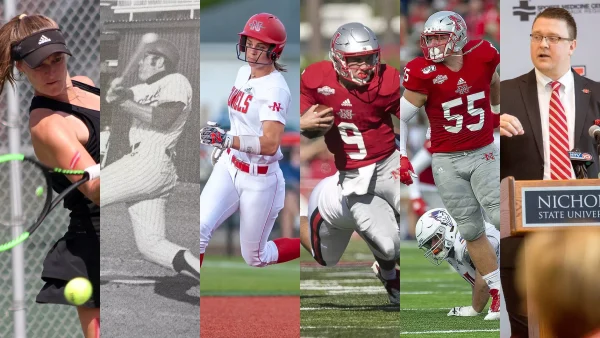Sports are not limited to those with Y chromosomes
It is a fact that women have to overcome sexist misconceptions on a daily basis and the reality is not any different when it comes to being a female athlete or sports fan.
Women often need to prove their abilities or knowledge in the sports arena to get minimal recognition and their capacity to like sports is still commonly put to a test. After all, sports aren’t a thing for women, right? Well, I am sorry to say, but that is wrong. The idea that most of the sports are not lady-like is among the many mistaken representations women are often subjected to since childhood.
In the past, women weren’t supposed to practice martial arts, soccer or any sport other than ballet. Sports are considered violent and women are supposed to be delicate. Some may even say that women aren’t smart enough to understand the rules of the sport or that women’s bodies have limitations, preventing them from “playing like a man” or even that women only pretend to like sports to get a boyfriend.
While none of those allegations are actually true, most women have heard them at some point in their lives. These, and other incoherent, gender-based impositions to what a women can and cannot do, begin early in a child’s life, and there is a big problem with that. Stereotypes regarding different colors, activities, toys, clothing and even prospective careers for different gender impose unnecessary limitations to the potential of both genders.
A recent post from Twitter user Megan Brown that become viral in the past week shows a perfect example of how men can be closed-minded about accepting that girls can like sports. In the post, she exposes a private conversation she had with a guy through text messages. In the conversation, the guy deliberately questions her passion for sports by asking her to name the National League East baseball teams.
Brown answered the infamous question with what she called a “fun-pun,” using the team names in the middle of the body of the text message intentionally.
“It was nice to have Met(s) you, and maybe it was Brave(s) of you to ask his question, but it’s somewhat insulting. I could Phill(ies) you in on the answer, but I’ll have to pass. It seems to be a National(s) problem with men trying to Expos(e) (bonus!) girls for not being ‘real sports fans’ instead of taking our word for it. But don’t worry – you know what they say – there’s other Marlins in the sea,” Brown replied.
Her comeback gained epic recognition after being shared on social media many times. The Huffington Post Women featured her story and the original Tweet was re-tweeted 12,530 and received 26,622 likes in a week. Many other female sports fans came out to support her and shared situations in which they were also exposed to this kind of nonsense interrogation.
This situation is a good example of how gender stereotypes are beginning to be constantly challenged in our society. In the past decades, women achieved a lot of rights and slowly gained their space in male dominated areas. However, there are still noticeable disparities between men and women engagement in sports-related activities, and believe me, such sexist mentality goes beyond fan-hood level.
There are considerably less women working as sports reporters, journalists and broadcasters. Women in positions of power in sports-related jobs are also a minority, from coaches to CEO positions. Professional female athletes make extensively less money in comparison to male athletes in the same sport, even when producing better results and bigger profits.
But do not lose your heart, girls. Women can and should get involved with sports if they want to, and nobody has the right to say otherwise. The more male-dominant spaces women conquer, the easier it will be to change people’s mindsets about what is a lady-like thing to do.











